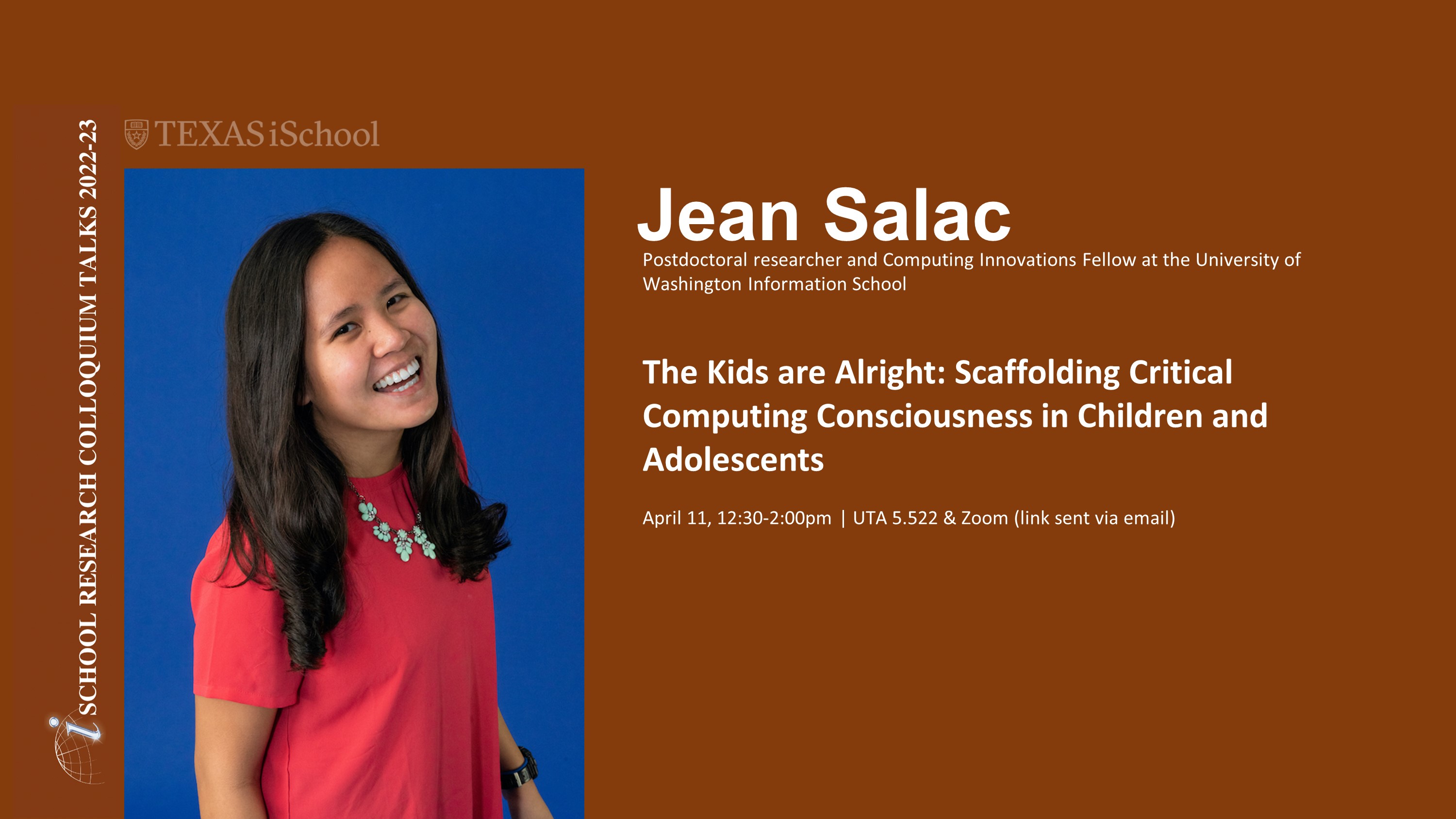
Abstract: The lives of today’s children and adolescents are inseparable from computing technology, endowing them with great benefits, but also amplifying bias and oppression. However, prior work provides limited guidance on how children and adolescents may learn to critically examine technology’s role in their lives and society in a way that both honors their experiences, knowledge, and agency, and prioritizes their well-being and safety. In this talk, Dr. Salac will present three studies on learning experiences that aim to address this research gap. To scaffold children and adolescents’ examination of algorithmic fairness, her team designed and evaluated an activity drawn from sensemaking practices in math education across two studies, one with child (ages 8-12) and adolescent (ages 15-17) participants. They found that both children and adolescents were adept at using knowledge from their lives and experiences to contextualize their perceptions of algorithmic fairness. However, while children tended to draw most from their own individual experiences and perspectives in their reasoning, adolescents also heavily considered larger ecosystems, such as community and society. To investigate adolescents’ examination of computing more broadly, they analyzed student work from a high school course on critically conscious computing in a third study. While students demonstrated a rich social consciousness of technology, they faced challenges in translating it into practice. Taken together, all three studies contribute more nuanced understandings of both children's and adolescents’ reasoning around technology’s societal impacts, suggesting potential pathways for critical engagement in computing education. For further details, please see: https://jeansalac.github.io/
Bio: Jean Salac is a postdoctoral researcher and Computing Innovations Fellow at the University of Washington Information School. Her research interests include computing education and child-computer interaction, particularly in justice-focused computing for young learners. Her work has won Best Paper at the International Computing Education Research Conference (ICER) and an honorable mention for Best Paper at the conference on Human Factors in Computing Systems (SIGCHI). She has also been named an EECS Rising Star and a Harper Fellow. She earned her PhD and M.S. from the University of Chicago, and her B.S. from the University of Virginia, all in Computer Science. Prior to becoming a researcher, she worked in various STEM education spaces, such as museums, policy, and startups.

